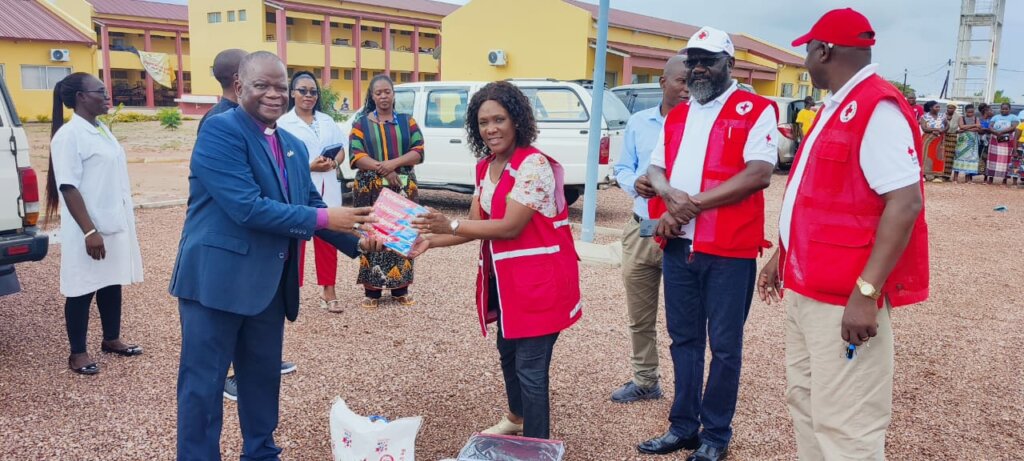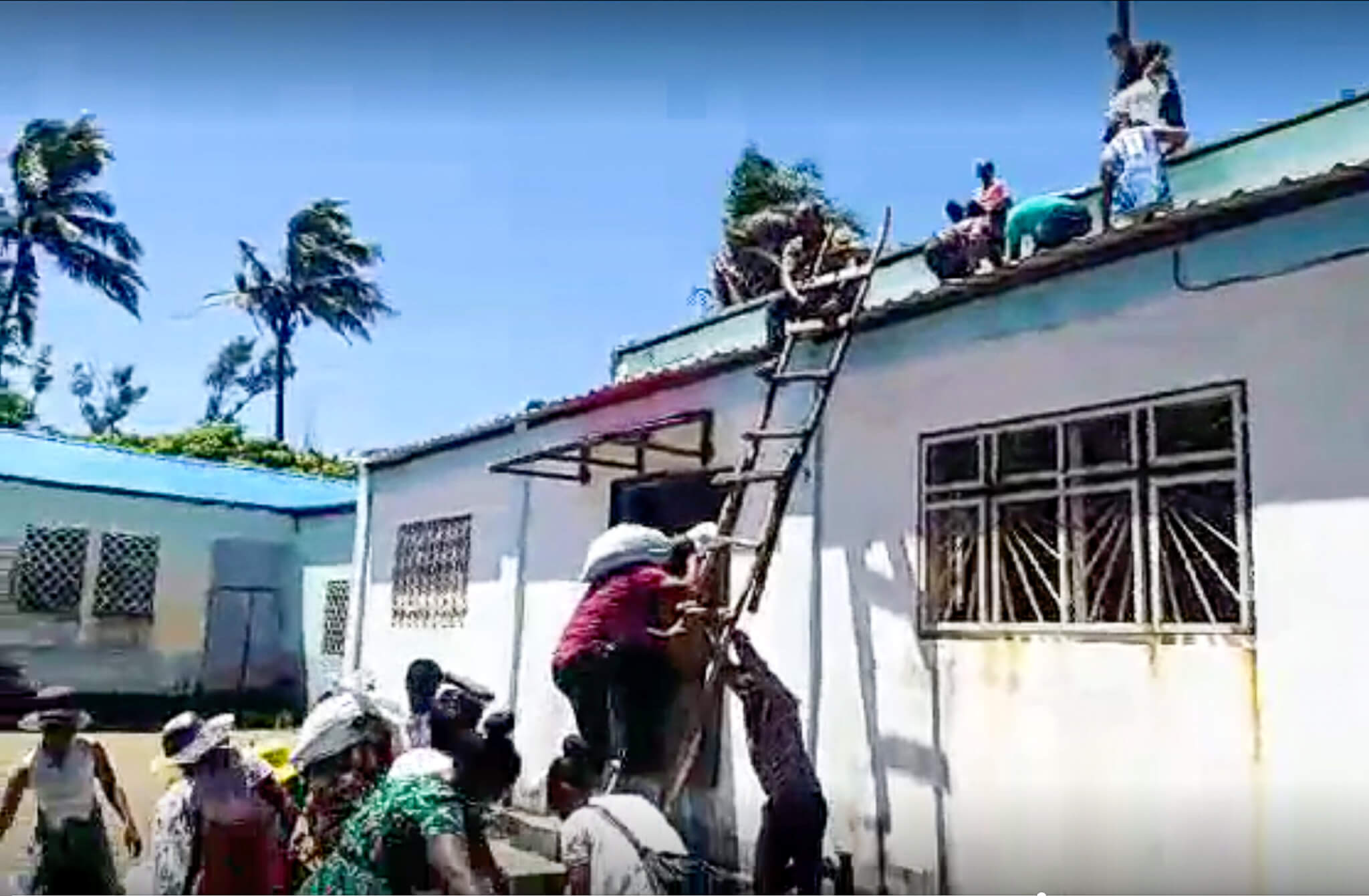“Maputo-Capital was most severely hit – but it is not only bad news because on the other hand we witness a lot of internal solidarity and action from different spheres of society, ranging from churches, business companies, associations and others coming together to help. The National Institute for Disaster Management is also coordinating actions in the field. Social media is being used to spread the word of donation points. Some Anglican parishes in affected areas are using their church halls and buildings to host IDPs [Internally Displaced People]. An appeal was sent to all Lebombo Diocese to help the victims of floods and ASA [Acção Social Anglicana] is coordinating those efforts. So whilst there is a lot to be done (rainy season still going on) we witness an amazing solidarity taking place. Resilience is the way forward!” WhatsApp message from Mercio Langa, Development Consultant and Resilience Course facilitator, Mozambique.
Last week we shared a Facebook post about the catastrophic flooding affecting communities in Zambia, Mozambique and South Africa. In Mozambique, the unusually high rainfall had claimed the lives of six people as of Monday 13th February and it was estimated that over 36,000 people had been affected – over half of whom were in Maputo, Mozambique’s capital city. Thousands of houses, 15 health centres and 15 schools had been damaged. Large areas of agricultural land had been flooded, impacting food security in the area.
This already severe humanitarian situation has now been made worse with the arrival of Cyclone Freddy, which made landfall in Mozambique on 24th February.
The World Meteorological Organization describes Tropical Cyclone Freddy as “one of the longest-lasting systems in the southern hemisphere… Freddy developed on 6 February off the coast of north-west of Australia and affected island nations, including Mauritius and La Réunion, during its long journey across the entire South Indian Ocean. This kind of super zonal track is very rare” (the last was in 2000).
Tropical storm Freddy hit Mozambique with initial windspeeds of 95km/h and tracked across seven districts in Inhambane Province and one in Gaza, an area where approximately 873,000 people live. Warnings were issued by the National Institute of Meteorology (INAM) that rainfall of over 200mm a day would affect the districts of Gaza, Manica, Inhambane and Sofala over the period 25-27 February.
By 28th February, seven people had died and seven injured. “Thousands of homes have been damaged and over 1,500 completely destroyed”, Flood List reports. “Twenty-six evacuation centres have been set up in affected provinces. As of 28 February the centres were housing over 7,500 people displaced from their homes.”
How is the Church responding?
The Anglican Church in Mozambique has been responding to the disaster since people were forced to find shelter after the initial floods. The Diocese of Libombos and Acção Social Anglicana (ASA), the development arm of the diocese, mobilised resources through the churches to help families who were victims of the floods in Maputo. Bishop Carlos Matsinhe delivered this to the National Institute for Disaster Management (INGD) on behalf of the diocese.

Bishop Carlos Matsinhe, bishop of Libombos Diocese delivering resources on behalf of the Diocese. Photo: Diocese of Libombos
Whilst the deaths of anyone in a disaster is a tragedy, the death toll in this unfolding disaster has been strikingly low. This is due to the disaster preparedness in the country, with early warning systems and emergency plans in place.
The Church has also intentionally increased its resilience and capacity to prepare for, and respond to, disasters. Many church leaders from the Diocese of Libombos took part in the Resilience Course, enabling them to increase the resilience of their congregations. The Resilience Course is run by the Anglican Alliance and Episcopal Relief & Development.
Madagascar
Mozambique was not the only African country impacted by Cyclone Freddy. Before reaching the main continent, it hit Madagascar, making landfall on 21 February. Here it claimed seven lives and affected at least 79,000 more.
The same area was hit by two cyclones in early 2022. Learning from those disasters, the Church helped communities prepare ahead of the devastating winds to reduce the impact of Cyclone Freddy. In the video, people from Mananjara are securing the roofs of a potential safe-shelter, mobilized by the Mothers’ Union staff who were part of the Anglican Alliance-hosted Resilience Course.
Community securing the roof of the church ahead of the cyclone as a safe-shelter. Video: Mothers’ Union, Madagascar
We continue to lift in prayer the families and communities impacted by these floodings and storm damage, not only in Mozambique but also in the neighbouring countries where the rains and the storms continue to cause havoc.
Lord and Holy Protector, like the disciples who were caught in their tiny boat in the midst of a mighty storm, we come together to seek Your help.
We are fearful as we are surrounded by danger.
We feel helpless and small before the great power of this perilous time, a power which is beyond our control.
We are fearful as we are surrounded by danger.
While everything seems dark and dangerous, we place our trust in You, our Lord and God.
Sheltered here in our home we are also shielded by Your love against all that might harm us.
We know that You hear all prayers; so, we now, filled with confidence, lift our petitions to You, our God.
Amen.
Prayer by Edward Hays

